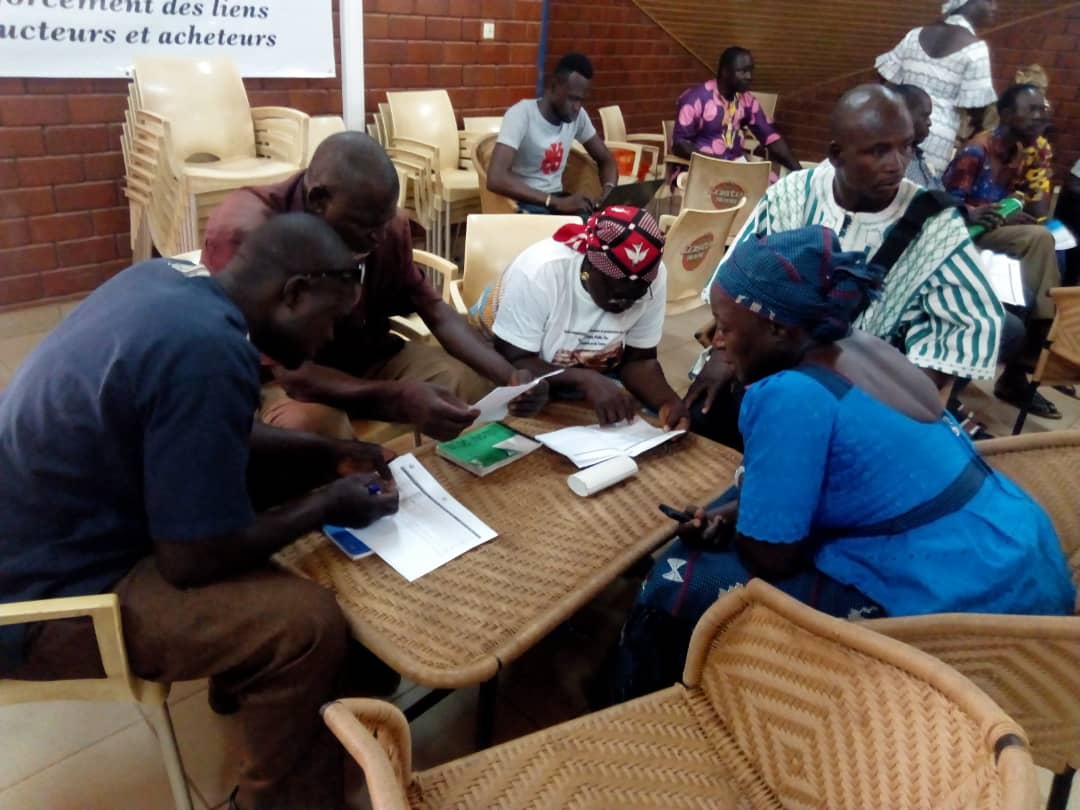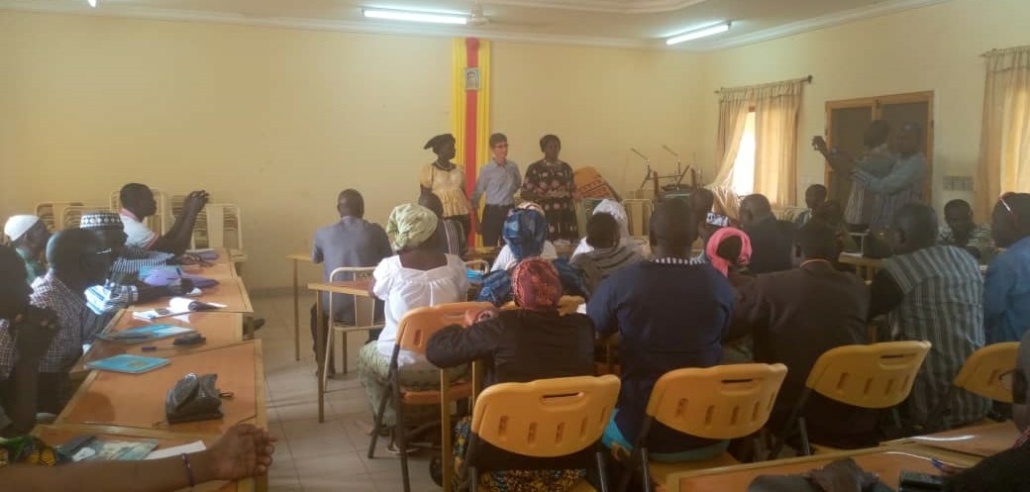800,000 is the number of people displaced (January 2020) as a result of the terrorist attacks perpetrated in Burkina Faso since the beginning of 2019. The entire territory is affected, to varying degrees, by a tangle of conflicts. 95% of the displaced persons are hosted by the host communities. Fert’s action, which has been deployed for 15 years in the Centre-North and North regions, must adapt to this context of insecurity by developing alternatives to maintain remote accompaniment for certain farmer organisations (FOs) without endangering the lives of staff and partner farmers.
Farmers on their feet – Dynamic and agile FOs
Three of Fert’s six partner cowpea farmer FOs are located in the areas most vulnerable to attack. Some functions that were previously carried out by Fert’s agricultural advisers have therefore been delegated to the heads of FOs and relay farmers who are learning to use ICTs (information and communication technologies) to benefit from remote support. In addition, it is now the producers who travel to the cities (Kaya, Ouagadougou) to meet technicians or follow training courses related to the development of their services.
Most of the displaced farmers (nearly 50% of the members of the three FOs) have found refuge in the capitals of the communes. While hoping for a possible return to their villages, some of them are initiating new income-generating activities: small-scale livestock farming, market gardening, cowpea processing, etc.
Adapting but not giving up
For Fert and his team in Burkina Faso (20 employees) the challenge is not to abandon his partners at a time when they need support the most. Since the beginning of 2019, this has meant adapting its support system: drawing up a security plan, geographical redeployment of certain agricultural advisers, limiting travel, etc.
Its in-depth knowledge of the territories and the trust acquired with producers make it possible to hand over to humanitarian actors when dramatic situations no longer allow families to envisage a development process.




